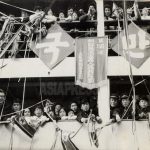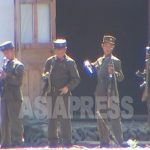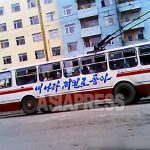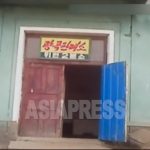◆ Sanctions continue to worsen conditions for ordinary people
The increase in ‘kojebi’ has been reported in other cities since March of this year. In April, ASIAPRESS published an article, following an investigation of the situations in Sangsoon, Ryanggang province and Musan, North Hamkyung province. These investigations found that the ‘kojebi’ gathering in border cities were not local children but rather children coming from cities in other regions such as South Hamkyung province.
The U.N. Security Council’s economic sanctions have dealt a heavy blow to North Korea’s exports and have had a huge impact on the lives of residents, especially those living in centers which produce exported goods. As local markets have stagnated as well, ordinary citizens have seen their incomes fall, making life extraordinarily difficult.
The soaring number of ‘kojebi’ represents a public welfare emergency. Nevertheless, the Kim Jong-un regime will continue to focus on tourism projects in Samjiyeon and Wonson as top priorities, with mass games planned to entertain Pyongyang tourists in the months ahead as well.
In the words of the reporting partner, “Life is difficult no matter where you look. And now, with so many ‘kojebi’, people are wondering if this is the beginning of a second Arduous March”.
In the late 1990’s, massive social upheaval occurred in North Korea, leading to an estimated 2 million people dying of starvation. This period is called the ‘Arduous March’ in North Korea. (Kang Ji-won/ISHIMARU Jiro)
※ ASIAPRESS contacts its partners in North Korea using smuggled Chinese mobile phones.
- The Rice Riddle: How Are Grain Prices Remaining Stable as N. Korea Faces a Humanitarian Crisis?
- <North Korea> Swine Swindlers: Merchants Claim Confiscated Pork is Being Supplied by Authorities to Construction Workers
- <Inside N. Korea> Kitchen Nightmare: Cash-Strapped Regime Competes Against Citizens in the Restaurant Business
- Pressure Point: China Stifles Smuggling as North Korean Exports Tumble
- <Inside N. Korea> A Building Burden: Rising Discontent as Regime Extorts Resources from Residents to Support Tourist Site
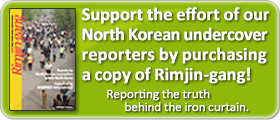 Editor’s notes on North Korean reporters
Editor’s notes on North Korean reporters
ALL REPORTS >>>
ARCHIVE(pdf) >>
DPRK MAP >>
